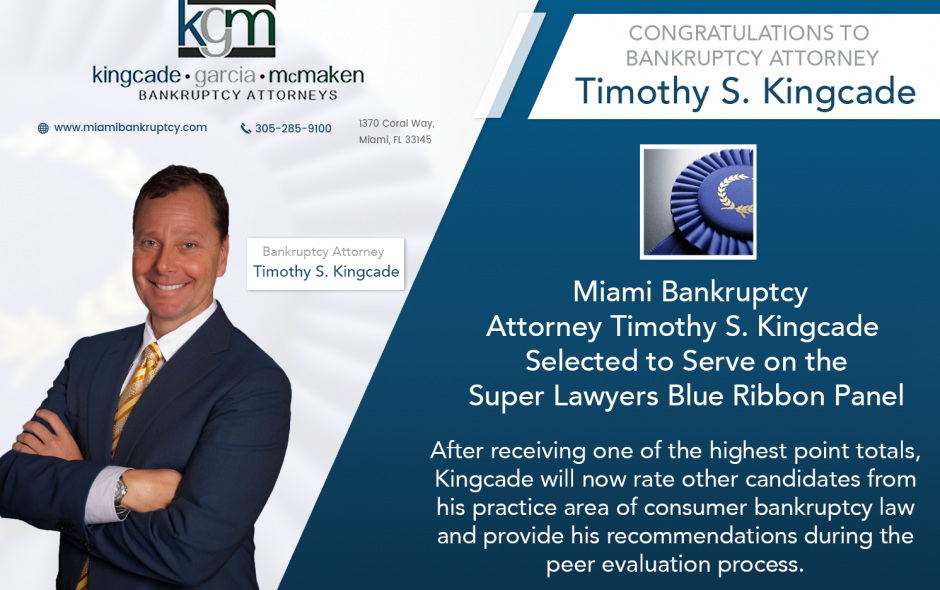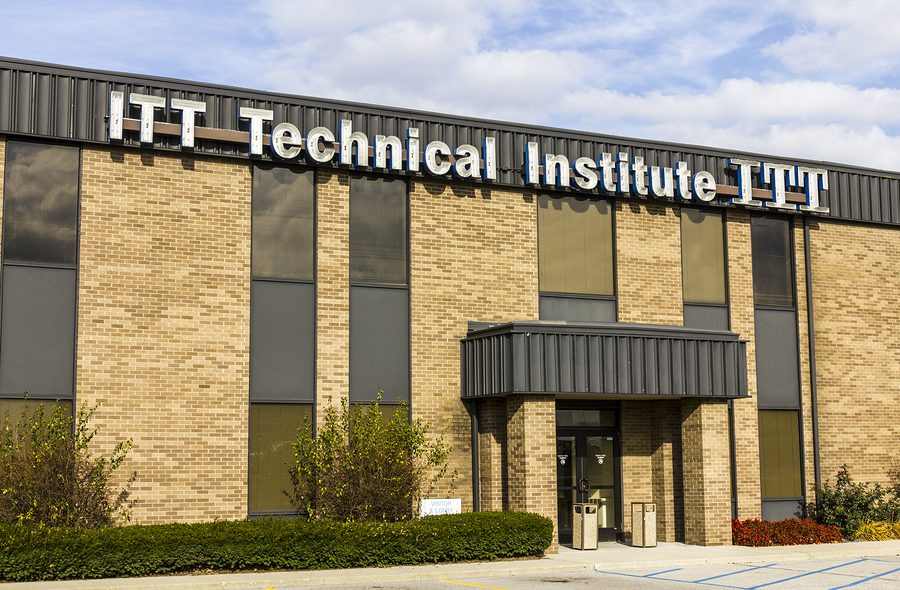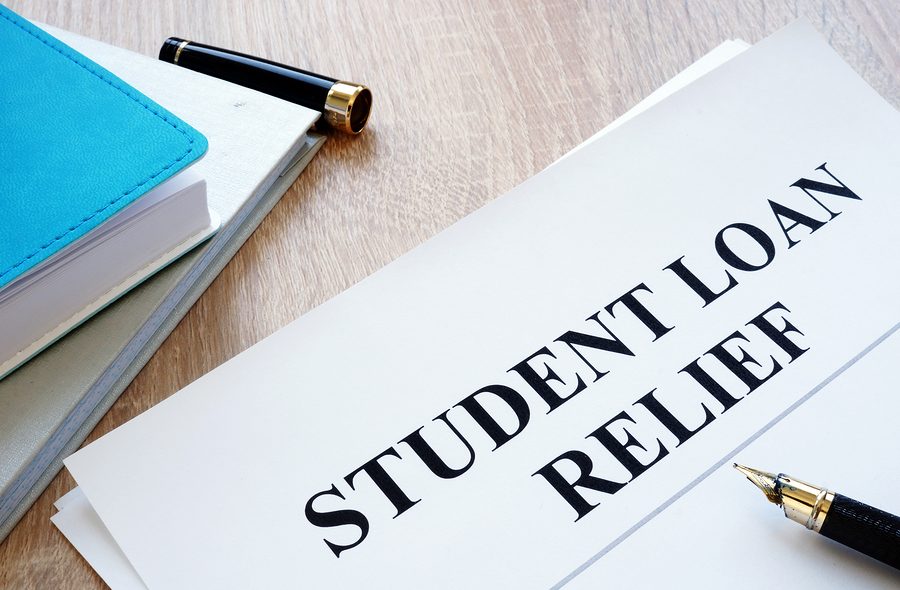Managing Shareholder, Timothy S. Kingcade of the Miami-based bankruptcy and foreclosure defense law firm of Kingcade Garcia McMaken has been selected as a Blue Ribbon Panelist for Florida Super Lawyers. Only those in each practice area with the highest point totals are asked as part of the panel to evaluate the candidacy of fellow lawyers to enter the prestigious Super Lawyer rankings.
“It is an honor to be selected among the Blue Ribbon Panelists in the most comprehensive and independent review of exceptional lawyers. Being selected as a Super Lawyer the past seven years is an achievement in and of itself, but to know that Super Lawyers values my opinion in the evaluation of my peers receiving the title of Super Lawyer is a true privilege I graciously accept,” said Timothy S. Kingcade.










